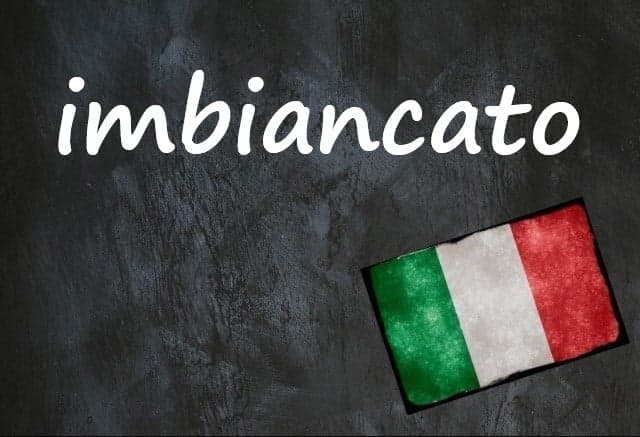
Italian word of the day: 'Imbiancato'

Here's a word you might find useful with the wintry weather arriving in northern Italy today.
Whenever freezing weather arrives in Italy, it makes for some stunning photos of famous sights transformed by more than a slight dusting of snow.
Many visitors are surprised to learn that it can snow heavily even in southern Italy, and that snowfall is common in the north. There's no doubt that Italy's already jaw-dropping sights and landscapes are even more magical in this weather.
Luckily, Italians have a particular word to describe the phenomenon.
Imbiancato is an adjective used to describe something that has been turned white, or diventato bianco.
We don't have a one-word equivalent for this in English - it would be something like 'enwhitened'.
Some dictionaries give 'whitewashed' as an English translation, but that doesn't quite work - since we don't say that snow has "whitewashed" a place.
For example:
- La neve ha imbiancato i sassi di Matera
- The snow has turned Matera’s Sassi white.
- Vedemmo Vesuvio imbiancato
- We saw Mount Vesuvius covered in snow
As if one cool word for being covered in snow wasn't enough, you could also use innevato, also meaning snowy or snow-covered.
- l'intera città era innevata
- The whole city was covered in snow
We think these are beautiful examples of how sometimes we express even the simplest thoughts completely differently in Italian than we would in English.
And of course, you can also say:
-Sulla neve
- In the snow
- Coperto di neve
- Covered in snow
So when you come across a magical Italian winter landscape, at least you won't be lost for words in Italian.
Do you have an Italian word you'd like us to feature? If so, please email us with your suggestion.
Comments
See Also
Whenever freezing weather arrives in Italy, it makes for some stunning photos of famous sights transformed by more than a slight dusting of snow.
Many visitors are surprised to learn that it can snow heavily even in southern Italy, and that snowfall is common in the north. There's no doubt that Italy's already jaw-dropping sights and landscapes are even more magical in this weather.
Luckily, Italians have a particular word to describe the phenomenon.
Imbiancato is an adjective used to describe something that has been turned white, or diventato bianco.
We don't have a one-word equivalent for this in English - it would be something like 'enwhitened'.
Some dictionaries give 'whitewashed' as an English translation, but that doesn't quite work - since we don't say that snow has "whitewashed" a place.
For example:
- La neve ha imbiancato i sassi di Matera
- The snow has turned Matera’s Sassi white.
- Vedemmo Vesuvio imbiancato
- We saw Mount Vesuvius covered in snow
As if one cool word for being covered in snow wasn't enough, you could also use innevato, also meaning snowy or snow-covered.
- l'intera città era innevata
- The whole city was covered in snow
We think these are beautiful examples of how sometimes we express even the simplest thoughts completely differently in Italian than we would in English.
And of course, you can also say:
-Sulla neve
- In the snow
- Coperto di neve
- Covered in snow
So when you come across a magical Italian winter landscape, at least you won't be lost for words in Italian.
Do you have an Italian word you'd like us to feature? If so, please email us with your suggestion.
Join the conversation in our comments section below. Share your own views and experience and if you have a question or suggestion for our journalists then email us at [email protected].
Please keep comments civil, constructive and on topic – and make sure to read our terms of use before getting involved.
Please log in here to leave a comment.